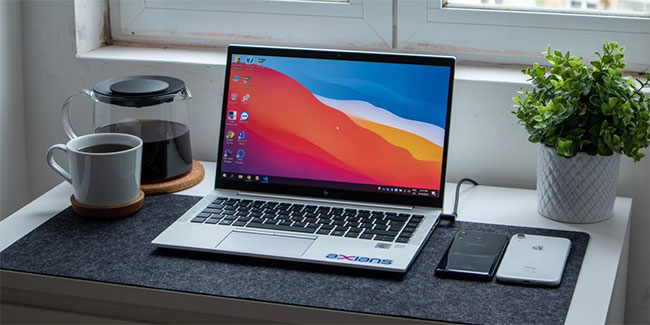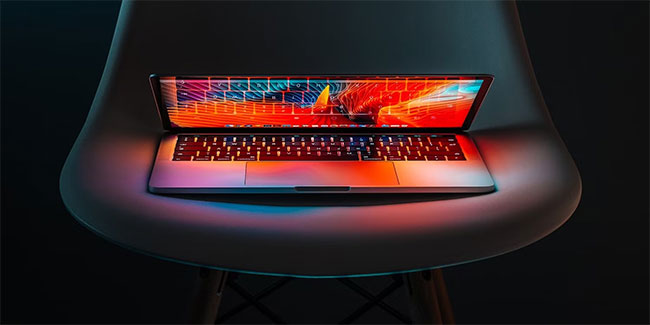How are Intel's U, P and H chips different?
On desktop computers, CPU selection is not very complicated. You don't need to know much about suffixes. For example, if it is a K CPU, it has the multiplier unlocked and allows overclocking, while without the suffix, it will be locked.
Knowing the difference between them can make a noticeable difference in your next laptop purchase.
What is the exact difference between Intel's U, H and P chips? Which one should you choose?
Why are laptop chips more difficult to understand than desktop chips?

The reason why there are so many laptop chips compared to desktop chips, and why you shouldn't just check to see if it's an i3 or an i5 chip, is because no two laptops are the same.
On desktop computers, certainly, the power consumption of certain chips is often very different. But the design of a PC has remained almost unchanged over the years - a box and inside is a motherboard. Depending on the situation, there are many places to cool down. Therefore, whenever there is a suffix on an Intel desktop chip, it usually means something else. F means there is no integrated GPU, while K means it has an unlocked multiplier.
However, laptops do not have as much space as desktop computers. Even the thickest laptops don't improve much in this regard. So, to make the device more portable, there have to be trade-offs. So why are there different CPU lines?
That's because even a few extra watts can make a big difference in the temperature on a laptop, and it depends on how thin or light you want your laptop to be, as well as how you'll be using it. For what purpose, different chip lines are needed to meet the needs of users. Currently, there are three CPU series - U series, P series and H series.
What is Intel's U chip?

Also, if you want a thin and light laptop and use it mainly for work and internet browsing, it will probably come with a U.
U stands for "ultra-low-power" and essentially, chips of this type are not necessarily the best in terms of CPU performance, but are instead low-power designs built with performance in mind. fruit. They have lower clock speeds, fewer cores, and more importantly, very low TDP. Intel Core i5-1265U has a capacity of 15W and can boost up to 55W in a short time. Some U chips have power as low as 9W. These chips can be cooled relatively easily, and depending on the PC's design, they can even be cooled passively.
They are relatively weak chips compared to other Intel products. To achieve that ultra-low power consumption, these PCs take a number of steps to improve performance, such as removing cores or making them run slower. This ultimately means performance will be reduced.
What is Intel's P chip?
Next, let's move on to Intel's P series. Like the U series, these are parts found on thin and light laptops. However, power consumption will increase slightly, and so will performance.
The P chip adds a bit of power - 28W to be exact - almost double (or even triple!) what a U-series chip requires. As a result, the power and thermal requirements for these chips are higher, so you'll need a more powerful cooling solution. But at this point, nothing can make a thin and light laptop thicker than usual, and with the right cooling system, that won't be a problem.
While you often see U series chips on laptops from $300 to $600 (7 to 14 million VND), P chips are found on higher-end "ultrabook" laptops like the Dell XPS 13, priced from $1,000 (23 million VND). or more. That's because increased thermal headroom allows Intel to squeeze out better performance on these chips.
What is Intel's H chip?

Intel's H chip is largely considered this company's laptop product line.
Unlike the P series and U series, H series products are not made to fit into a thin and light laptop. While those chips go up to 28W, an H CPU can go up to 45W. This capacity is not comparable to a desktop CPU (Core i9-12900K has a capacity of 125W), but for laptops, that number is really huge - remember, they have enclosed spaces and components. The interior doesn't have much space to 'breathe'. That doesn't mean they aren't good. In fact, they are quite suitable for laptops.
Another advantage of H chips is that they are also very close to desktop options. While the Intel Core i9-12900K is making its way onto desktop PCs, the i9-12900H is instead made for only the best laptops available.
H chips are not suitable for thin and light PCs, which often appear in gaming laptops, which are larger and thicker than other laptops, because they need better cooling to compensate for internal heat. radiate.
So should I choose Intel U, P or H chip?

The decision depends largely on how much you want to spend on a laptop and what you want to do with it.
As mentioned, U chips are present in thin laptops priced from $400 to $700. These PCs are suitable for office work, browsing the Internet, installing necessary programs and other things that are not related to games or heavy work. If you want to do heavier work on your PC, you should probably move up to ultrabooks over $900, which will definitely come with a P chip.
Finally, if you buy a gaming laptop, it will most likely come with an H chip if supported by Intel.
Many different lines of Intel laptop chips exist because no two laptop users are exactly alike. Some may not care about performance and prefer a slim laptop that performs amazingly for work/study purposes. Others may want something extremely powerful, even at the expense of portability.
Hopefully, now you know the difference between these chips and make the right decision for yourself.
You should read it
- Intel's 9th generation chip shows a new path, no need to follow Moore's law
- Learn about AMD chip lines? Are they better than Intel chips?
- Intel i7-9700K chip reaches 5.5Ghz speed on all 8 cores, with water cooled
- Compare chips (CPU) AMD and Intel? What is the best choice?
- Intel brought its strongest chip, a Core i9 processor, to a laptop
- The chip that combines Intel and AMD gives the baby PC with a palm that can use VR
 Samsung will allow AI wallpaper creation on its touchscreen refrigerators
Samsung will allow AI wallpaper creation on its touchscreen refrigerators 4 most popular image improvement AI tools
4 most popular image improvement AI tools The 5 best apps and websites to watch classic movies
The 5 best apps and websites to watch classic movies Apple may introduce a new Siri-like AI 'personality' for Robots
Apple may introduce a new Siri-like AI 'personality' for Robots The moon looks majestic when viewed from the International Space Station ISS
The moon looks majestic when viewed from the International Space Station ISS Things to look for in a smartphone camera
Things to look for in a smartphone camera